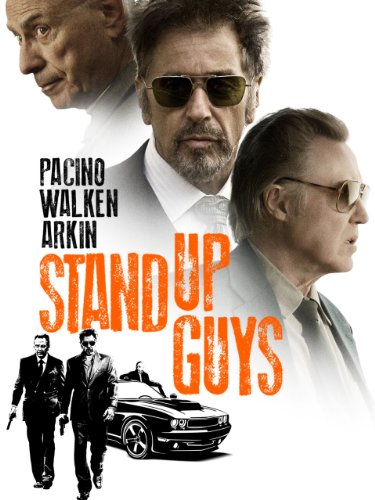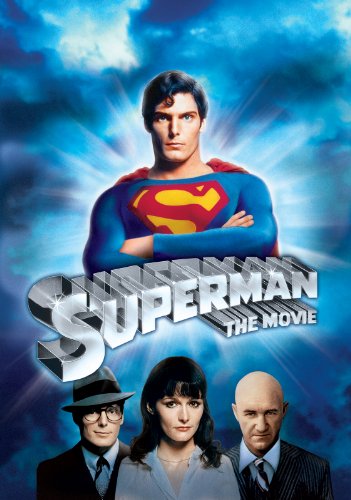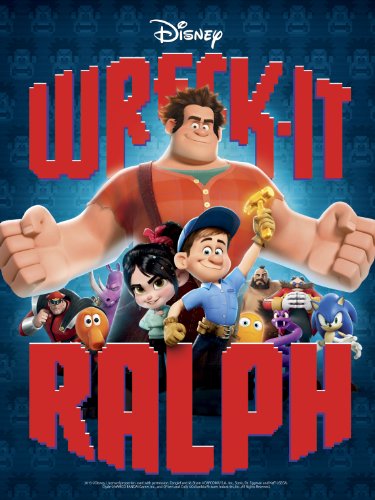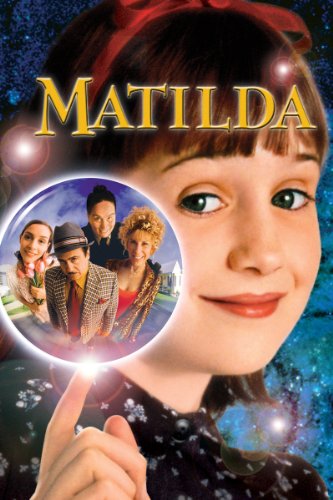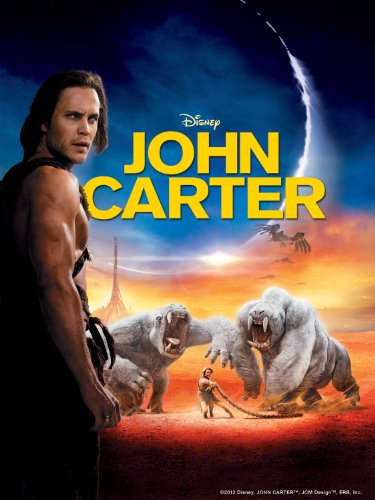 Cloud Atlas
Cloud Atlas
A single story that unfolds in multiple timelines over the span of 500
years. Characters meet and reunite in different eras. Featuring an
all-star cast led by Tom Hanks and Halle Berry.
David Mitchell is one of my absolute favorite writers, and Cloud Atlas
is among my favorite novels. It was my top pick for 2004. I've
previously blogged about my unusual first encounter with Mr. Mitchell
while he was touring for Cloud Atlas. (Google "David Mitchell returns to
San Francisco" if you're curious.) Good times!
Anyway,
considering my love of the novel, you can imagine that I've been looking
forward to the film with equal measures of anticipation and
trepidation. You always want the film to do the source material justice,
but it's rare that it actually happens. Especially when you're looking
at a novel as complex as Cloud Atlas. It was said by many to be
unfilmable, and if asked, I would have agreed.
And I would have
been so very wrong. What Andy Wachowski, Lana Wachowski, and Tom Tykwer
have achieved is nothing short of astounding. I'll cut to the chase and
tell you that I LOVED this film. It will surely be my favorite of the
year.
Have you read Cloud Atlas? The novel has a very unusual
structure. Mitchell's an experimental writer. The novel is composed of
six linked stories taking place in six different time periods and
comprised of six different literary genres. Yeah, that's not too
ambitious. The novel opens with the most distant story in the past, a
19th century adventure at sea. Halfway through, the story ends abruptly,
mid-sentence. Next, we're at the home of a once-eminent European
composer in the early 20th century. That, too, ends abruptly, and now
we're embroiled in a mystery in early 1970's San Francisco. But halfway
through the tale just stops and we're on to a high comedy set near the
present day. After reading half of Timothy Cavendish's ghastly ordeal,
we're suddenly in the science fiction world of a futuristic and
dystopian Seoul--for half a story. And finally, we're in far-distant,
post-apocalyptic Hawaii, in a tale written entirely in pigeon English.
And at last, the story goes all the way through to the end, after which
the second half of the Seoul story commences, followed by all the others
in reverse order.
The film is... totally not like that. It's
structured completely differently, with quick scenes from all six
stories rapidly juxtaposed against each other. There is constant
shifting. It's an amazing way to tell the tale(s), but it works. It more
than works. It really drives home the novel's abstract themes of
connectedness. After the film, one of the things my friends and I
commented upon was the staggering job of editing this film. I can't
imagine what went into it, but it was masterful.
What these three
writer/directors--apparently with limited input from Mr. Mitchell--did
with this screenplay is extraordinary. It is brilliant. Now, it's been
eight years since I read the novel, so my memory of the details is not
so fresh, but by my reckoning, the screenplay was remarkably true to
Mitchell. I recognized dialogue taken verbatim from the novel. Yes,
there were elisions, but they were minor. The composer's daughter was
removed entirely. She's a character that stands out in my mind due to a
memorable later cameo in Mitchell's Black Swan Green, but you know what?
She was superfluous. The film didn't need her. I'm sure there were
other minor changes, but nothing at all that made me cry foul. No, as I
watched the film, memories of the novel came flooding back in the most
wonderful way. These filmmakers did a magnificent job of realizing the
world(s) that David Mitchell had created.
The film boasts an
impressive a-list cast that includes Tom Hanks, Halle Berry, Jim
Broadbent, Hugo Weaving, Jim Sturgess, Doona Bae, Ben Whishaw, Susan
Sarandon, Hugh Grant, and so many others. And you've never seen these
actors like this. No one has. Go to IMDB and read the cast credits.
They're all double, triple, quadruple, quintuple, and sextuple cast! You
can't possibly catch or recognize all of their iterations. The actors
change age, race, nationality, and gender across the roles. The makeup
work is extraordinary, and if the film doesn't win the Oscar, there is
simply no justice. Trying to spot Hugh Grant (mostly in smaller
supporting roles) buried under old man or cannibal makeup is all kinds
of fun, but this is far more than Hollywood stunt casting. The casting
reflects the novel's themes. It gets the message across at times almost
subliminally. It also gives these stars the opportunity to really flex
their acting muscles. Tom Hanks brings down the house in a brief comic
turn as a thuggish author. When have we seen this actor play so many
different colors in a single film? It reminds viewers of just how good
he is. Oh yeah, that's what those Oscars were for. The same can be said
of much of the cast. I strongly encourage you to stay for the
credits--at least long enough to see the photos of the actors in their
many roles flash by. You will be shocked by what you missed. THAT was
Halle Berry? you'll find yourself thinking.
Oh, and look for
author Mitchell in a cameo as a "Union Spy." I didn't catch him, but
I'll be on the lookout next time. Because I plan to see this film many,
many times. There's just too much to take in. I'd venture I'll catch
something new every time I see this film in years to come. Even at the
lengthy running time of 2:44, I was ready to walk right back into the
theater and start over from the beginning. The film held me transfixed,
and I can't wait to see it again. Not to mention, I've already got a
wish list in my mind of DVD extras!
I don't generally write movie
reviews, but Cloud Atlas has inspired me. The ideas, the themes, the
imagery of David Mitchell's wonderful and ground-breaking novel have
sprung to life. It is magical. I attended an advance screening with
several members of my book group the other night, and there was equal
enthusiasm from those who had read the novel, and those who hadn't.
Among my group, there were six thumbs way up, and one lonely
dissenter--but she can write her own review. Mine is an unqualified
rave. Go. See. This. Film.
Have you ever felt hammered by a movie? Has it ever taken you days, weeks,
to integrate a movie, in your head and heart? Read on ...
If you see this movie, you'll probably see why some people don't like it. In
fact you may see different reasons for different people. A great movie allows
the individual to bring their own positive interpretation. Cloud Atlas also
allows the individual to bring their own negatives.
My own personal bitterness was "How come my heros always die, but your heros
always live happily ever after?" This hit me hardest as I was walking out of
the theater, but it still galls me to think about it.
You see, its like this: Cloud Atlas goes for power and effect. If they hit
something positive in you, you rave about it. If they hit something negative,
you hurt big time. This movie isn't about entertainment, its about achieving
enough kinetic force to shake you up. Its wrenching. And some people do not
like being shaken like a rag doll. More so, because as people have said,
Cloud Atlas is unlike any other movie ever made.
In a broader sense, I think almost everyone has at least one scene where you
ask yourself "Do I really wanna sit here and watch this?" The whole diversity
thing, not just diversity of people, but diversity of fates, gets close to the
point of overload with Cloud Atlas, and anyone who feels pushed over the redline
will walk out, having better things to do.
Again, its like this: If you can hold the movie at arms length, you're ok, but
if you step inside it, then its really disturbing. And I'm not talking about
the sex and violence either. Its the ideas, plural. There are so many ideas in
this movie, at so many different levels, its like a living fractal. Not ideas
just for the sake of ideas, not ideas just to shake you up, but ideas that
speak to you as a unique individual.
For me, Cloud Atlas is the most disturbing movie since Donnie Darko, although
they are radically different movies. But then again, some of it is funny, and
parts of it are exhilarating too. It has a mix of light and dark, it isn't all
dark. And it isn't "comic relief" either. Somehow, the lighter parts of the
movie are woven directly into the fabric of the story. It works amazingly well.
In technique, Cloud Atlas takes the concept of an ensemble movie, and re-invents
the entire purpose and effect of having an ensemble. And it isn't just in how
the actors are related, and who plays what role. One of the foundations of a
conventional movie is to build an association in our minds, between 1 actor and
the 1 role they play. Cloud Atlas demolishes that foundation and replaces it
with its own unique creation. Its disorienting, to such a degree that you can't
grasp it from other people's words. You have to experience it for yourself to
appreciate the *power* of it.
Cloud Atlas is also a film that has a voice, in particular on the subject of
artificial life. This topic has been around for many decades in science fiction
books and movies. But as technology seems to get closer to actually creating
it, fiction has gotten more sophisticated in how it expresses its message about
artificial life. That message is the most disturbing part of Cloud Atlas for me.
The writers see a storm coming, a new kind of storm that no one has ever seen
before.
I'm not talking about things like the Terminater and SkyNet. Cloud Atlas doesn't
deal with machines, it deals with souls. Sure, Cloud Atlas is fiction. But our
past is not fiction. We have an ugly history of repeating our mistakes. And some
mistakes only become fatal after they've been repeated over and over and over
again.
Regarding the "everyone's connected" philosophy, I thought this works great
as a narrative device, without me feeling (today at least) that I personally
subscribe to that philosophy. I would hope this philosophy doesn't deter
anyone from seeing the movie, because I think they turn it into a positive
thing, even for people who don't agree with it. Its part of how the story
is built, and built very well.
Another area where Cloud Atlas pushes the envelope is in taking all the actors
and doing radical, (sometimes humorous) make-overs to fit them into a character.
This itself has offended some people, because Cloud Atlas doesn't apply any
limitations at all, and it has dozens of makeovers. This is very different than,
for instance, Looper, where the make-up and acting are all focused with
overwhelming skill into changing 1 single person into another single person,
with absolute conviction. In Cloud Atlas, the transformations are beautiful,
striking, uncanny, other-worldly. It becomes another way in which this movie
hammers at you.
If you decide, like me, that Cloud Atlas is indeed a masterpiece, you will
probably have one moment, one scene, which pushes you over the edge and into
the realization that it *is* a masterpiece. Not necessarily the most powerful
scene in the movie, but the scene where the sum of it all finally overloads
your doubts.
For me, that scene was where we first see Doona Bae as Tilda. I've never seen
anything like that in a movie, and it took me about 15 seconds to just begin
to parse what I was seeing. The sheer creativity, the imaginative beauty of
the character, connecting outwards into 2 hours of the vast scope of the movie,
just blew me away. Truly, a masterpiece.
I am a Buddhist and I went with a group of fellow Buddhists and Buddhist Monks to see this movie today.
Right
off there are Buddhist messages all over the place. Sutras quoted over
and over, Buddhist imagery and of course the message of rebirth and
Karma.
But the problem is that unless you are a Buddhist it is
very unlikely that you would pick up on all these undertones and the
theme.
The general Western public has zero knowledge about Buddhism
and the message will be lost on most people. This is unfortunate
because there was a great opportunity here to bring this message to the
foreground and introduce people to Buddhist concepts.
It's there but
so very few people will ever understand what is being told here. Had
they only taken a moment to maybe give people some obvious clues so that
the curious could at least have some point of reference to begin asking
questions, that would have been great.
But the curious are left unfulfilled and empty handed and most people will walk away thinking "WTF did I just watch?"..
That
said. As for the movie itself, be prepared for a great deal of graphic
violence and gore. It was awful and tragic but it was a necessary
thing that needed to be shown to illustrate the cruelty and hateful
nature of humans and to illustrate Dukkha (Suffering).
The six tales
illustrate the six realms of suffering and Saṃsāra which is the endless
cycle of birth, life, death and rebirth and how several characters
attempted to escape that cycle.
I cried throughout most of the
movie, at the cruelty and suffering and cheered a few parts when some of
the characters stood up for themselves and did what they could to put a
stop to it, to change the course of their lives. But I just don't want
to say anything else because I do not want to be the one to spoil it
for someone else.
Trust me on this, take a Buddhist friend with
you to see this movie and ask them questions. Go to google and search
for "Cloud Atlas Buddhist" and take a read through the many Buddhist
forums that are discussing this movie.
Most are referring to it as a
"Buddhist Fiction" or even "Buddhist Science Fiction". But whatever you
do, don't just write it off as a confusing, disjointed, weird movie.
Seek. As questions. Doors will be opened for you and your life can be
changed by what you find.
Personally I will by buying this on
Bluray when it comes out so I can have subtitles, some of it was
difficult for me as I have hearing damage and some of the characters
spoke with a heavy accent.
Also being able to pause and rewind (so to
speak) will be handy because there are sooooo many subtle hints, visual
and otherwise that I want to go back and look at. I'm also hoping they
will include a commentary by the directors and what-not and interviews.
I guess that's the "extras" portion of the disc.
This movie
will be a topic for discussion at our Buddhist Meditation center for
some time to come. I am anxious to hear our Monks interpretation and
take on this movie. I suppose I will also be getting the book as I
heard it's much better and even deeper than this was.
Just know this,
this is a very unusual and complex movie. It's not kooky, it's got an
important message but to understand the message you will have to seek
out assistance from others.
"Our lives are not our own. We are
bound to others, past and present, and by each crime and every kindness,
we birth our future."
Previews
